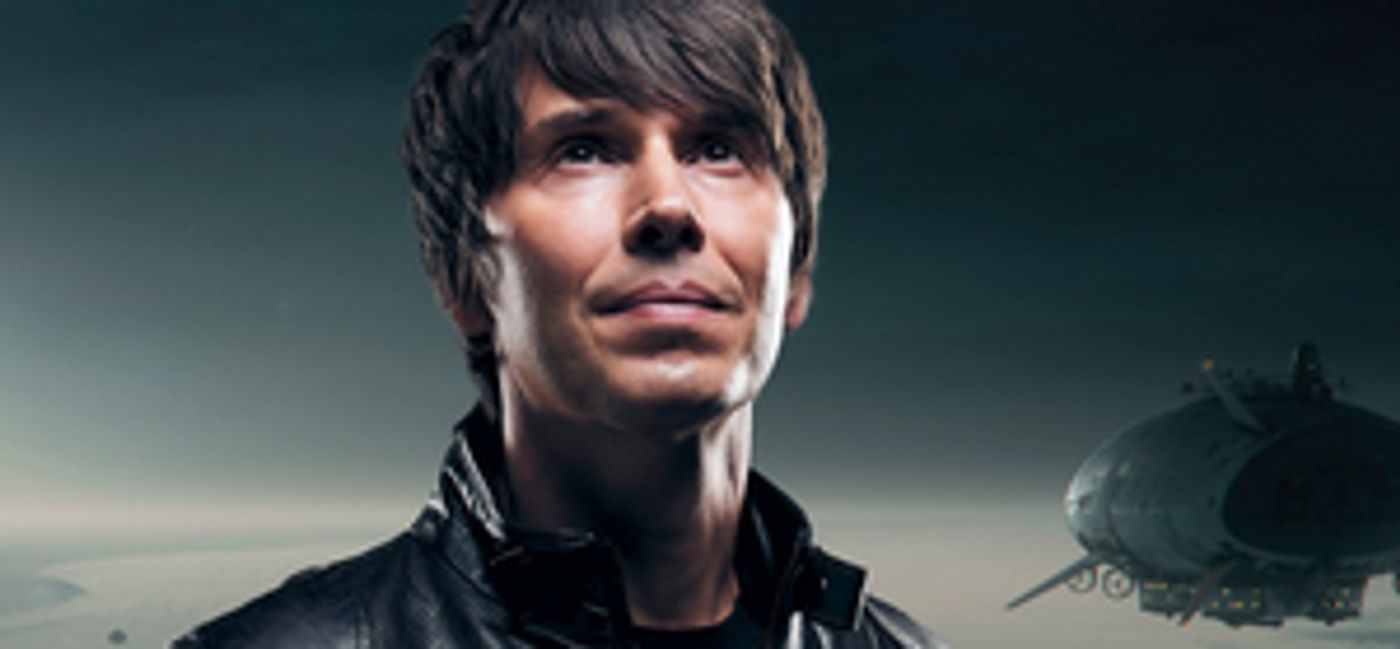Review: HORIZONS - A 21ST CENTURY SPACE ODYSSEY, O2 Arena
Professor Brian Cox and Robin Ince mesmerise and amuse in their latest mind-blowing tour

![]() A few years ago, the concept of a scientist selling out arenas across the world simply wouldn't compute, but the Professor Brian Cox Effect continues to work its magic. He and Robin Ince are back with a brand new tour that seeks to answer the following question: "What does it mean to live a small, finite life in an infinite, eternal Universe?" Over the course of a couple of hours, the audience is taken on a whistlestop tour of cutting-edge physics, exploring the observable universe and attempting to make sense of black holes with the assistance of a stunning array of images.
A few years ago, the concept of a scientist selling out arenas across the world simply wouldn't compute, but the Professor Brian Cox Effect continues to work its magic. He and Robin Ince are back with a brand new tour that seeks to answer the following question: "What does it mean to live a small, finite life in an infinite, eternal Universe?" Over the course of a couple of hours, the audience is taken on a whistlestop tour of cutting-edge physics, exploring the observable universe and attempting to make sense of black holes with the assistance of a stunning array of images.
The show begins with a short film set to Sibelius' Symphony No. 5 OP.82 3rd Movement, beginning 13.8 billion years ago with the origin of the Universe, watching as stars and planets form, and following humans in a sci-fi future as they head out to find a new home. Erik Wernquist is responsible for the graphics depicting the posited future, and this sets the visual bar incredibly high from the outset.
Obviously, aspects of this show would work perfectly well in a lecture theatre or similar (the WiFi would certainly be more reliable!), but it more than justifies its presence in a larger venue with its careful choice of music - including a space-themed playlist beforehand and during the interval - and deployment of massive LED screens on which to showcase spectacular high-resolution images and simulations.
In the same way that a band might tweak their setlist as the tour progresses, Horizons stays true to its scientific core; new imagery has become available over the past few weeks, and so they have been incorporated into the show in order to keep it as up-to-date as possible. On Tuesday 30 August, NASA released a stunning picture of the Phantom Galaxy captured by the James Webb Telescope, and within 24 hours it had been added to the running order of the show. This demonstrates the dynamic nature of the field, as well as Cox's commitment to his teaching quest.
Cox is a natural teacher; he has the extraordinary talent for walking you through an incredibly complex theory without making you feel stupid, ultimately allowing your brain to start making the connections for yourself - and before you know it, you can understand a bit of physics that would have completely baffled you before you walked through the door. His deep-rooted love of the subject is a force of nature in its own right, and when it's combined with a humorous touch you can't help but get sucked in.
The key with something like this is to break it down into manageable chunks, so not only are his general relativity and quantum mechanics lectures condensed down into two five-minute talks, but the out-and-out science sections are separated by brief appearances from Robin Ince, where he'll either find a way of winding up his colleague or extol the benefits of a science education at any age in life. Ince's lockdown poem inspired by nightly stargazing is a particularly moving moment in the show.
Horizon is the perfect example of the interconnectedness of different disciplines, and that people tend to have a fascination with a wide range of things throughout their lives. In the government's bid to make STEM (science, technology, engineering and mathematics) subjects the focal point of every school pupil's life, they have forgotten the role that the arts and humanities have to play in everyday life - and that cross-curricular benefits are also there for the taking.
There's also an excellent point to be made about action over climate change: though there are plenty of Earth-like planets in the Milky Way alone, there's no guarantee that any of them can support life in the way our own planet can. Science fiction can make it seem inevitable that humanity will find a way out and eventually colonise the stars, reality may not play out that way. And if we're no longer here, who will create a meaning for the Universe?
As Robin Ince remarks, there is a lot of potentially downbeat material in the show (End of time? Check. Existential crisis? Check.), but in the hands of Professor Brian Cox it's transformed into something inspiring. Whether you understand everything or not, there's an unforgettable night out to be had thanks to their entertaining partnership, and the wonderful pictorial display behind them. Don't miss it.
Horizon was at the O2 Arena on 31 August and tours the UK until 2 October
Photo credit: Brian Cox Live
Reader Reviews

Videos

